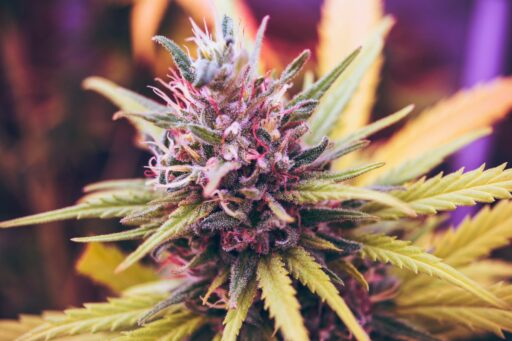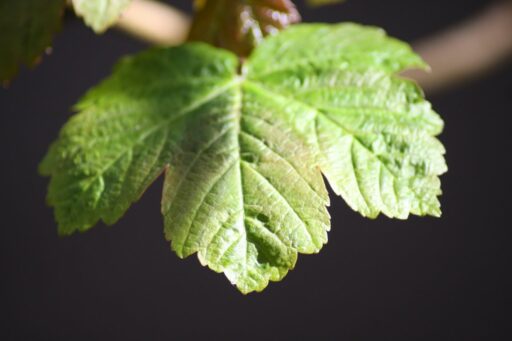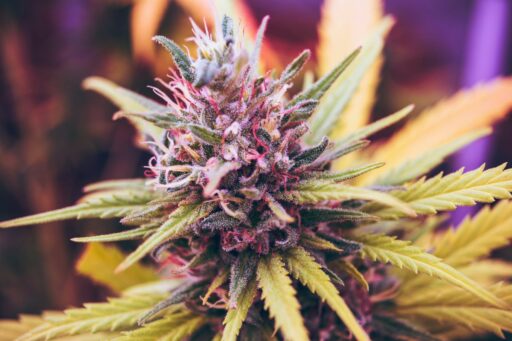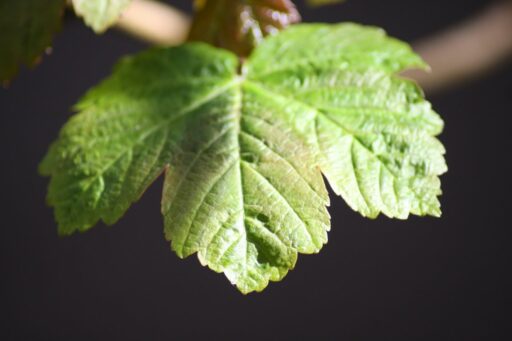The legal landscape for marijuana in Illinois has evolved significantly in recent years, reflecting broader trends across the United States. With changes in legislation and public opinion, understanding the nuances of Illinois’ marijuana laws is essential for residents, businesses, and law enforcement alike. This article delves into the intricacies of Illinois’ marijuana legislation, the business environment surrounding cannabis, medical marijuana use, recreational policies, and the future of cannabis laws in the state.
Key Takeaways
- Illinois has undergone substantial changes in its approach to marijuana, transitioning from strict prohibition to regulated medical and adult-use markets.
- The state has implemented a comprehensive licensing system for cannabis businesses, with a focus on safety, regulatory compliance, and economic impact.
- Medical marijuana in Illinois is accessible to patients with qualifying conditions, emphasizing patient rights and legal protections.
- Recreational marijuana laws offer guidelines for possession, consumption, and public safety, balancing individual freedoms with community concerns.
- Illinois is poised to continue evolving its marijuana legislation, with pending reforms and the influence of public opinion shaping the future legal landscape.
Understanding Illinois Marijuana Legislation

Historical Context of Cannabis Laws
The journey of cannabis legislation in Illinois has been marked by significant shifts, reflecting broader national trends and local advocacy efforts. The state’s relationship with marijuana has evolved from stringent prohibition to a more progressive stance, embracing both medical and recreational use.
- Pre-1930s: Widespread medicinal use of cannabis tinctures and extracts.
- 1931: Illinois bans cannabis amid growing national anti-marijuana sentiment.
- 1970s: Decriminalization efforts begin, reducing penalties for possession.
- 2013: Illinois legalizes medical cannabis through the Compassionate Use of Medical Cannabis Pilot Program Act.
- 2020: Legalization of recreational marijuana for adults 21 and over takes effect.
The legalization of recreational cannabis in 2020 marked a historic turning point, as Illinois became the 11th state to permit adult-use marijuana. This shift not only altered the legal landscape but also set the stage for economic and social change within the state.
Current Statutory Provisions
Illinois has taken significant strides in reforming its marijuana laws. The Cannabis Regulation and Tax Act (CRTA), effective since January 1, 2020, is the cornerstone of Illinois marijuana legislation. It legalizes the use and possession of marijuana for adults aged 21 and over, while also establishing a framework for the regulation and taxation of cannabis businesses.
The CRTA outlines specific provisions for the legal cannabis market:
- Adults can possess up to 30 grams of cannabis flower, 5 grams of cannabis concentrate, or 500 milligrams of THC in a cannabis-infused product.
- Non-residents are limited to half those amounts.
- The law provides for the expungement of certain marijuana-related offenses.
- A portion of the tax revenue is allocated to communities impacted by the war on drugs.
The CRTA also emphasizes social equity, aiming to provide opportunities in the cannabis industry to those who have been disproportionately affected by previous drug policies.
The state has implemented a comprehensive regulatory system to ensure compliance with these provisions, including tracking systems for plants, products, and sales, to prevent diversion and ensure public safety.
Possession, Cultivation, and Consumption Regulations
In Illinois, the approach to cannabis regulation has been to balance public safety with individual freedoms. Adult residents can legally possess up to 30 grams of cannabis flower, 5 grams of cannabis concentrate, or 500 milligrams of THC in a cannabis-infused product. Non-residents are allowed half those amounts.
- Possession limits for residents:
- 30 grams of cannabis flower
- 5 grams of cannabis concentrate
- 500 milligrams of THC in cannabis-infused products
- Possession limits for non-residents are half of each category listed above.
Cultivation is permitted for medical cannabis patients, who may grow up to five plants that are more than five inches tall, in their residence, out of public view. Recreational cultivation is not allowed, and penalties for illegal cultivation can be severe.
Consumption of cannabis is legal in private residences and in businesses that are licensed for on-site consumption. However, public consumption remains illegal and can result in fines. Driving under the influence of cannabis is a serious offense and is actively enforced by law enforcement agencies.
Navigating the Licensing and Business Environment

Commercial Licensing Requirements
In Illinois, the commercial cannabis industry is regulated by the Illinois Department of Agriculture (IDOA). Entities looking to engage in the cultivation, processing, or distribution of cannabis must navigate a complex licensing process. The IDOA oversees the issuance of licenses for various cannabis-related operations, including Craft Growers, Infusers, and Transporters.
To obtain a license, applicants must meet a series of stringent requirements, which may include background checks, business plans, and security measures. The state has also implemented a Community College Cannabis Pilot Program to foster education and workforce development in the cannabis sector.
The licensing process is designed to ensure that only qualified and responsible businesses contribute to the legal cannabis market in Illinois.
It’s crucial for prospective licensees to stay informed about the latest regulations and to prepare comprehensive applications to increase their chances of success.
Impact on Local Economies
The legalization of marijuana in Illinois has had a significant impact on local economies, with both positive and negative effects. On one hand, the cannabis industry has created new jobs and generated tax revenue. On the other, it has introduced complexities such as increased competition for existing businesses and regulatory challenges.
- Job creation: The cannabis sector has opened up a range of employment opportunities, from cultivation and retail to ancillary services.
- Tax revenue: Legal sales have contributed to the state’s coffers, supporting public services and infrastructure.
- Business competition: Some local businesses have faced new challenges due to the competition from cannabis dispensaries.
- Regulatory navigation: Companies must navigate a complex web of regulations, which can be a barrier to entry for new businesses.
The dynamic between the burgeoning cannabis market and traditional local businesses continues to evolve, with ongoing adjustments in regulatory frameworks and market strategies.
While the full economic impact is still being assessed, early indicators suggest that the cannabis industry is becoming an integral part of the state’s economic landscape.
Regulatory Compliance for Cannabis Businesses
Ensuring regulatory compliance is a critical aspect for cannabis businesses operating in Illinois. Businesses must navigate a complex web of regulations to maintain their licenses and avoid penalties. Compliance involves adhering to state laws, local ordinances, and industry best practices.
- Licensing Renewal: Regular renewal of licenses is mandatory, with strict deadlines and requirements.
- Product Testing: All cannabis products must undergo rigorous testing for potency and contaminants.
- Record Keeping: Accurate and detailed records must be kept for a minimum period as specified by law.
- Security Measures: Implementation of state-mandated security protocols is non-negotiable.
It is imperative for businesses to stay informed about the latest regulatory changes to remain compliant. Proactive engagement with legal counsel and industry groups can provide valuable insights and guidance.
Medical Marijuana and Patient Rights

Qualifying Conditions for Medical Use
In Illinois, the list of qualifying conditions for obtaining a medical marijuana card is extensive, reflecting a compassionate approach to patient care. The state recognizes a variety of ailments, ensuring that patients with diverse medical needs can access cannabis for therapeutic purposes.
- Alzheimer’s Disease
- Anorexia Nervosa
- Arnold-Chiari malformation
- Autism
- Cachexia/Wasting Syndrome
The inclusion of conditions such as Alzheimer’s and Autism demonstrates Illinois’ commitment to providing relief for chronic and debilitating conditions through medical cannabis.
Patients seeking to use medical marijuana must receive a certification from a licensed healthcare provider, confirming that they have one of the approved conditions. This process underscores the importance of a regulated framework to ensure that only eligible patients receive access to medical cannabis.
Patient Registration and Access
In Illinois, patients seeking access to medical marijuana must navigate a registration process that ensures only qualified individuals can legally obtain cannabis for medical purposes. The registration is a critical step in safeguarding patient rights and maintaining regulatory oversight.
To register, patients must meet certain criteria and submit the required documentation, which includes proof of residency, a qualifying medical condition, and a physician’s certification. The process is outlined as follows:
- Determine eligibility based on a list of qualifying medical conditions.
- Obtain a written certification from a licensed physician.
- Complete the application form provided by the Illinois Department of Public Health.
- Submit the application along with the necessary documents and fees.
Once approved, patients receive a registry identification card, granting them legal access to purchase and possess medical cannabis from licensed dispensaries. It’s important for patients to keep their registration current to avoid any legal issues.
The ease of access and efficiency of the registration system are vital in ensuring that patients who require medical cannabis can receive it without undue burden.
Legal Protections for Medical Cannabis Users
In Illinois, medical cannabis users are afforded a range of legal protections to ensure their rights are maintained. Patients registered in the medical marijuana program are shielded from discrimination in areas such as employment, housing, and child custody, provided their consumption is in line with state regulations.
- Employment: Employers cannot penalize registered patients solely for their status as medical cannabis users.
- Housing: Tenants cannot be evicted solely for consuming medical cannabis if they are registered patients.
- Child Custody: Medical cannabis use, by itself, is not a valid reason for denying custody or visitation rights.
The new law, Senate Bill 336, establishes a pilot program that aims to safeguard patient safety without compromising the standards of the medical marijuana program.
These protections are crucial in normalizing medical cannabis use and integrating it into society without stigma or undue legal barriers. However, patients must adhere strictly to possession and consumption guidelines to maintain these protections.
Recreational Use and Public Policy

Adult-Use Cannabis Laws
In Illinois, the legalization of cannabis for adult use has marked a significant shift in the state’s approach to marijuana regulation. Adults aged 21 and over are legally permitted to purchase and possess cannabis for recreational purposes, aligning Illinois with a growing number of states that have adopted similar policies.
- Purchase limit: Individuals can buy up to 30 grams of cannabis flower, 5 grams of cannabis concentrate, or 500 milligrams of THC in a cannabis-infused product.
- Home cultivation: Only medical cannabis patients are allowed to grow up to five plants at home.
- Dispensaries: Licensed dispensaries are the sole legal vendors for recreational cannabis.
The introduction of adult-use cannabis laws has been a complex endeavor, requiring careful balancing of legal, social, and economic considerations. The state has implemented these laws with the intent to ensure safety, prevent underage access, and regulate the market effectively.
Public Consumption Guidelines
In Illinois, the public consumption of marijuana is subject to strict regulations. Consuming cannabis in any form is prohibited in public spaces, including parks, streets, and businesses, unless the business is licensed for on-site consumption. This is in line with the state’s commitment to maintaining public safety and respecting the rights of non-consumers.
- Consumption on private property is permissible with the property owner’s consent.
- Designated smoking areas may be established by licensed businesses.
- Violations can result in fines and other penalties.
It’s essential for individuals to be aware of their surroundings and the local laws to avoid inadvertent infractions. While private use is generally allowed, discretion is advised to ensure compliance with all applicable regulations.
Law Enforcement and Public Safety Concerns
The interplay between law enforcement and public safety in the context of Illinois marijuana laws is a complex and evolving issue. The Illinois Supreme Court is currently considering a pivotal case that questions whether the odor of cannabis is sufficient cause for police to search a vehicle. This decision will have significant implications for both police procedures and the rights of individuals.
- The outcome of this case could redefine the boundaries of lawful search and set a precedent for future encounters between law enforcement and citizens.
- It also highlights the ongoing need to balance public safety concerns with individual freedoms in the era of legalized marijuana.
The ruling will be a critical juncture in determining how marijuana laws are enforced and how far the powers of law enforcement may extend in the pursuit of public safety.
The Future of Cannabis Legislation in Illinois

Pending Legal Reforms and Proposals
As Illinois continues to adapt to the evolving landscape of cannabis legislation, several key reforms and proposals are on the horizon. Lawmakers are actively considering changes that could further liberalize cannabis laws, potentially expanding access and streamlining regulatory processes.
- Expansion of qualifying conditions for medical cannabis use
- Introduction of new licenses to increase market participation
- Revisions to tax structures to benefit state and local governments
- Proposals to enhance social equity programs
The dialogue surrounding these reforms is indicative of the state’s commitment to refining its approach to cannabis regulation, ensuring that the legal framework remains responsive to the needs of Illinois residents.
Public forums and legislative committees are currently engaged in discussions to gauge the impact of these potential changes. Stakeholders, including business owners, healthcare professionals, and consumer advocates, are contributing their insights to shape the future of cannabis policy in Illinois.
The Role of Public Opinion and Advocacy
Public opinion and advocacy play pivotal roles in shaping the trajectory of cannabis legislation in Illinois. The voice of the electorate has proven to be a powerful force in influencing policy decisions and legislative reforms. Advocacy groups, both local and national, have been instrumental in educating the public and lawmakers about the benefits and implications of marijuana legalization.
- Grassroots movements have galvanized support for more progressive cannabis policies.
- Public campaigns have aimed to destigmatize marijuana use and highlight its medical benefits.
- Advocacy efforts have also focused on the economic advantages of legalizing marijuana, such as job creation and tax revenue.
The interplay between public sentiment and political action is a dynamic aspect of the legal landscape. As the Illinois Attorney General advocates for looser federal cannabis restrictions, it underscores the significance of legal and regulatory evolution in response to public advocacy.
Anticipating Federal and State Law Interactions
As Illinois continues to navigate the evolving landscape of cannabis legislation, anticipating the interactions between federal and state laws becomes crucial. The federal government maintains its own set of regulations, which often conflict with state-enacted laws, creating a complex legal environment for businesses and consumers alike.
- Federal laws classify marijuana as a Schedule I controlled substance.
- State laws, such as those in Illinois, may permit use under specific conditions.
- Discrepancies between federal and state laws can lead to legal uncertainties.
The harmonization of laws is essential to provide clear guidance for all stakeholders. Efforts to align state regulations with federal policies are ongoing, and the outcomes of these efforts will significantly shape the future of the cannabis industry in Illinois.
Understanding the potential changes and preparing for various legal scenarios is vital for businesses operating in this space. Stakeholders must stay informed and agile, ready to adapt to new legal frameworks that may emerge from this interplay.
Conclusion
As we have navigated through the intricate tapestry of Illinois marijuana laws, it is evident that the legal landscape is in a state of dynamic evolution. The recent developments across various states, including the FDA’s research on cannabis rescheduling and the progressive steps taken by New York and Ohio, reflect a broader national trend towards re-evaluating cannabis regulations. While Illinois continues to adapt its policies to meet the needs of its residents, the conversation around cannabis is expanding, with states like Alabama exploring the future potential of online cannabis accessibility. This article has unveiled the complexities and ongoing changes within Illinois, providing a glimpse into the potential that lies ahead for improved accessibility, consumer empowerment, and economic growth in the cannabis industry. As we look towards the future, it is clear that the dialogue surrounding cannabis will continue to shape its legal and social acceptance, promising a landscape of opportunity and transformation.
Frequently Asked Questions
Is marijuana legal in Illinois for recreational use?
Yes, marijuana is legal for recreational use in Illinois for adults aged 21 and over, with specific regulations regarding possession, cultivation, and consumption.
How does one obtain a commercial cannabis license in Illinois?
Obtaining a commercial cannabis license in Illinois involves meeting various requirements set by the state, including but not limited to, application submission, compliance with state laws, and sometimes local approval.
What are the qualifying conditions for medical marijuana use in Illinois?
Illinois has a list of qualifying conditions for medical marijuana use, which includes various chronic and debilitating medical conditions for which a doctor can recommend cannabis as treatment.
Can Illinois residents grow their own cannabis at home?
Yes, Illinois residents who are registered medical cannabis patients are allowed to grow a limited number of cannabis plants at home for personal use. Recreational cultivation is not permitted.
Are there any pending legal reforms for cannabis laws in Illinois?
The legal landscape is constantly evolving, and there may be pending reforms or proposals at any given time. It’s important to stay updated with the latest legislative developments for the most current information.
How does the legalization of marijuana in Illinois impact local economies?
The legalization of marijuana in Illinois has positively impacted local economies through job creation, tax revenue, and business opportunities in the cannabis industry.





